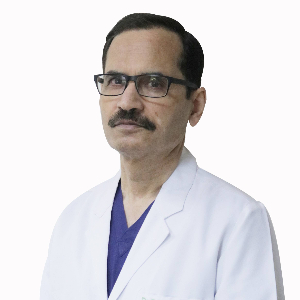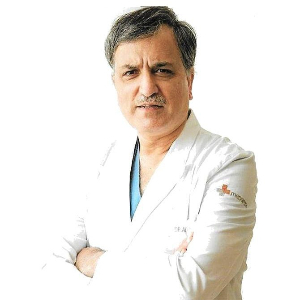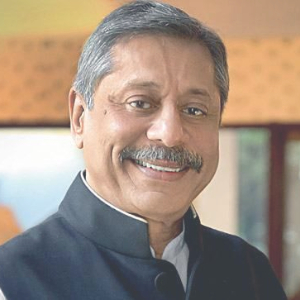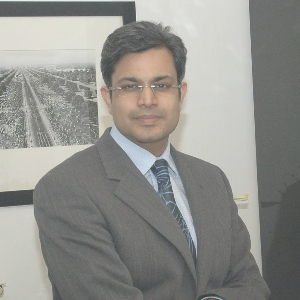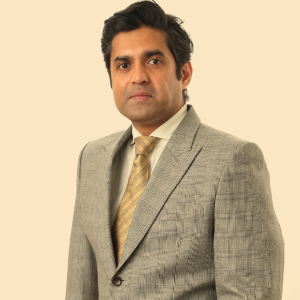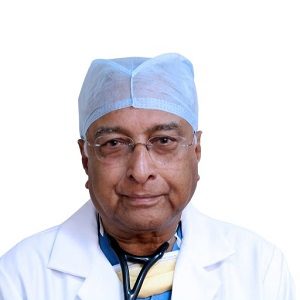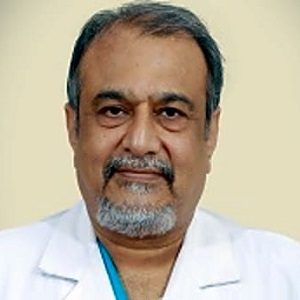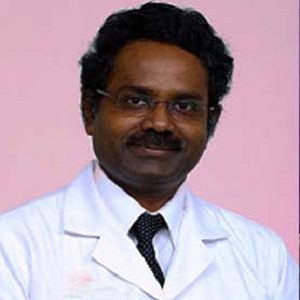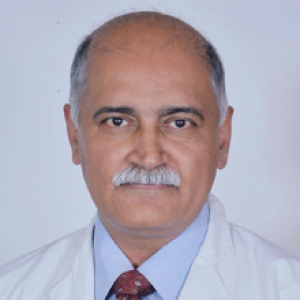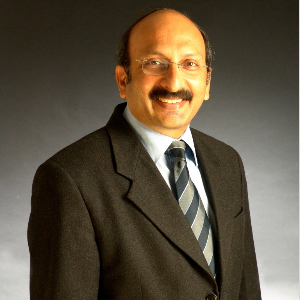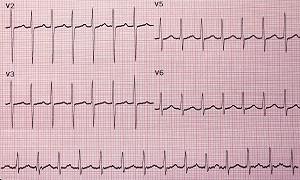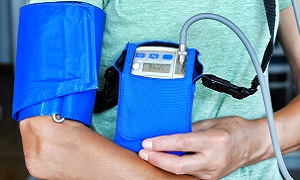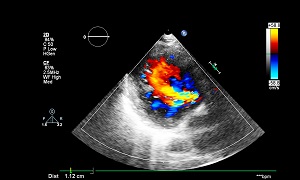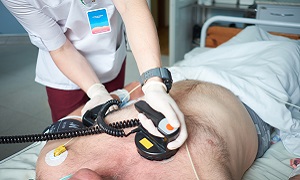Best Doctors in India for Atrial Fibrillation treatment
- Cardiac Surgeon, New Delhi, India
- Over 30 years’ experience
Profile Highlights:
- Dr. Z S Meharwal is a well-known cardiac surgeon in India who has performed over 20,000 cardiac surgeries, including some of the most complex and high-risk cardiac procedures.
- Dr. Meharwal is a member of the founding team that started the Fortis Escorts Heart Institute and has been associated with the hospital since then.
- His interest lies in Minimally Invasive Cardiac procedures, valve repair, and replacement, and heart transplants among other major vascular and thoracic surgeries.
- Cardio Thoracic & Vascular Surgeon, Gurugram, India
- Over 35 years’ experience
Profile Highlights:
- Dr. Anil Bhan is an excellent Cardiovascular and thoracic surgeon who has performed more than 15,000 cardiac and vascular surgeries that include heart transplant surgery, aortic aneurysm surgery, pediatric cardiac surgery, valve repairs, and peripheral vascular surgery among several others.
- He is one of the best pediatric cardiac surgeons in Delhi/ NCR and is credited with performing heart bypass surgery on the youngest patient in India in 2007 (18 months).
- He performed the first extracorporeal membrane oxygenation and was the first to use a harmonic scalpel for harvesting radial mammary artery conduits in India in 2000 and 1995 respectively.
- Cardiac Surgeon, Gurugram, India
- Over 40 years’ experience
Profile Highlights:
- Dr. Naresh Trehan is one of the most highly skilled and globally recognized cardiothoracic and vascular surgeons.
- He started his career as a Cardiac Surgeon at New York University Medical Centre where he performed over 3000 coronary artery surgeries and returned to India in 1988 and founded the Escorts Heart Institute and Research Center in New Delhi.
- Dr. Trehan is the Founder Chairman of Medanta- The Medicity in Gurugram, a premier multi-specialty hospital with state-of-the-art infrastructure and equipped with the latest and advanced technologies.
- Cardio Thoracic & Vascular Surgeon, New Delhi, India
- Over 16 years’ experience
Profile Highlights:
- Dr. Mukesh Goel is a reputed Cardio-Thoracic and Vascular surgeon serving as a Senior Consultant of the specialty at Indraprastha Apollo Hospital, New Delhi.
- He carries an experience of 16+ years and has performed more than 3000 different cardiac surgeries. Dr. Mukesh Goel is constantly on the lookout to develop new and innovative techniques to perform cardiac procedures that help in quick recovery with minimum incisions.
- His expertise lies in on and off-pump bypass surgeries and also finds interest in beating heart bypass surgery, open-heart surgery, minimally invasive heart valve surgery, and pediatric cardiac surgery among several others.
- Dr. Mukesh Goel received his training in CTVS from one of the most renowned cardiac surgeons in India, Dr. Naresh Trehan, and has been using the exposure to perform various advanced and complex heart surgeries.
- Before joining Indraprastha, Dr. Goel has been associated with other prestigious heart centers in India like Escorts Heart Institute, Apollo Hospital in New Delhi, and Medanta in Gurugram where he helped in starting the Heart surgery unit.
- He frequently gets invited to attend cardiology conferences and seminars to deliver lectures and present papers. He also regularly takes part in workshops and CMEs for cardiac surgeries.
- Dr. Mukesh Goel is a keen researcher and has published a number of papers and articles on CTVS in renowned national and international medical journals.
- Heart & Lung transplant Surgeon, Hyderabad, India
- Over 20 years’ experience
Profile Highlights:
- Dr. Sandeep Attawar is a highly recognized Heart and Lung transplant surgeon in India who has over 2 decades of experience as a cardiac surgeon and has performed more than 10,000 cardiac surgeries on adult and pediatric patients.
- Dr. Attawar specializes in all types of surgeries for adults as well as pediatric heart patients and finds interest in heart and lung transplant surgery, congenital heart surgery, Aortic aneurysm repair, and implantation of heart failure devices.
- Cardiac Surgeon, Cardiothoracic Surgeon, Vascular Surgeon; Chennai, India
- Over 45 years’ experience
Profile Highlights:
- Padma Bhushan awardee Dr. Girinath M R is a senior cardio-thoracic Surgeon in Chennai having experience of more than 45 years in Cardiac Surgery.
- Dr. M R Girinath was a fellow of Coronary Artery Surgery and Congenital Heart Surgery at the University of Wisconsin, USA.
- He provides consultation and diagnostic services for Mitral/Heart Valve Replacement, Cardiac Pacing, Invasive Cardiology, ABPM, Balloon Mitral Valvuloplasty, CT Angiography, etc.
- Cardiac Surgeon, Cardiothoracic Surgeon, Vascular Surgeon; Chennai, India
- Over 37 years’ experience
Profile Highlights:
- LF Sridhar is a well-known Cardiothoracic & Vascular Surgeon in Chennai, now working at Apollo Hospital in Greams Road, Chennai, and has an experience of 37 years in this arena.
- Some of the services available with the doctor are Mitral/Heart Valve Replacement, Cardiac Pacing, and Intra – Arterial Thrombolysis, Pacemaker Implantation, and bypass surgery besides the regular OPD procedures.
- Cardiac Surgeon, Cardiothoracic Surgeon, Vascular Surgeon, Chennai, India
- Over 25 years’ experience
Profile Highlights:
- Dr. K Madhan Kumar is a well-known Cardiac Surgeon in Tamil Nadu, having many years of experience in the domain.
- His experience came from practice and teaching. These days, he is associated with Apollo Hospital Greams Road in Chennai as a Senior Consultant Cardiothoracic & Transplant Surgeon.
- Dr. Kumar has also completed Fellowships in Cardiothoracic Surgery at SGH in London as well as ECMO, VAD, and transplantation at HH in London.
- Cardiac Surgeon, New Delhi, India
- Over 21 years’ experience
Profile Highlights:
- Dr. Kulbhushan Singh Dagar, a pioneer and an expert in the cardiology field earned his reputation through his exceptional performance in the field of complex congenital heart defects, especially for newborns.
- With over 21 years of experience, Dr. Dagar has dedicatedly performed complex surgical procedures by implementing innovative techniques and cutting-edge technologies in his procedures and is currently considered an asset to the cardiac industry, not just nationally, but internationally too!
- Interventional Cardiologist, Gurugram, India
- Over 30 years’ experience
Profile Highlights:
- Dr. Praveen Chandra is one of the most well-known and respected Interventional Cardiologists in India and performs over 5000 percutaneous and diagnostic interventions every year.
- He specializes in devising techniques that help minimize open surgeries. Dr. Praveen Chandra performed the first Percutaneous Aortic Valve implantation without surgery in India.
- He also developed techniques to reduce the number of patients requiring bypass surgeries and has been trying to make angioplasty techniques more accurate to help with the treatment of multiple blocked arteries.
Best Hospitals in India for Atrial Fibrillation treatment
Indraprastha Apollo Hospital, New Delhi
- City: New Delhi, India
Hospital Highlights:
- Indraprastha Apollo Hospital is a 700-bedded multispecialty hospital in the heart of the capital of India. It is a part of Apollo Hospital group, one of India’s most reputed healthcare chains. Indraprastha Apollo Hospital has been accredited by Joint Commission International, making it the first internationally accredited hospital in the country in 2005.
- There are 52 specialties in the hospital with one of the best cardiology centers in the country. The hospital is also equipped with State of the art infrastructure facilities with the largest Sleep Lab in Asia and the largest number of ICU bed facilities in India.
- The hospital also has one of the largest dialysis units in India along with a dedicated Bone Marrow Transplant unit.
- The latest and highly advanced technologies that are installed in the hospital include Da Vinci Robotic Surgery System, PET-MR, PET-CT, Cobalt-based HDR Brachytherapy, Brain Lab Navigation System, Tilting MRI, Portable CT scanner, 3 Tesla MRI, 128 Slice CT scanner, DSA Lab, Endosonography, Hyperbaric Chamber and Fibro scan.
Fortis Memorial Research Institute, Gurugram
- City: Gurugram, India
Hospital Highlights:
- Fortis Memorial Research Institute is a multi-super-specialty, quaternary care hospital with 1000 beds. The hospital comprises reputed clinicians, and international faculty and is also equipped with cutting-edge technology. The hospital is a part of Fortis Healthcare Limited, a reputed chain of private hospitals in India.
- It is a NABH-accredited hospital that is spread across 11 acres of land and has a capacity of 1000 beds. The hospital has 55 specialties and is one of the premier health care centers in the Asia Pacific region popularly known as “the Mecca of Healthcare”.
- The hospital has 260 diagnostic centers and is also equipped with the latest and advanced techniques that include 3 Telsa which is the world’s first Digital MRI technology. The hospital also has world-class Radiation Therapy techniques which have been developed by leading technology experts from Elekta and Brain Lab.
Apollo Hospital, Chennai
- City: Chennai, India
Hospital Highlights:
- Apollo Hospitals, Chennai, is one of the best hospitals for heart care in India. Over the years, Apollo has expanded all over India, as a healthcare chain.
- India’s first ‘Only Pancreas’ transplant was performed in Apollo Hospital. The hospital is known for successfully performing Asia’s first en-bloc combined heart and liver transplant, and over the years, it has attained a remarkable achievement in the global healthcare space. Around 3-4 organ transplants are performed in the hospital per day.
- Equipped with over 500 beds, this hospital in Chennai was established in 1983 and since then has been among the most preferred hospital for patients from all over the world.
- The hospital holds accreditation of the NABH and JCI and is the first hospital in India to be ISO 9001 and ISO 14001 certified. It is also the first South Indian Hospital to receive subsequent reaccreditation from the JCI USA 4 times.
Medanta-The Medicity, Gurgaon
- City: Gurugram, India
Hospital Highlights:
- One of India’s best and largest multi-specialty hospitals, Medanta was built with the aim to bring India to the highest standards of medical care. The hospital has been providing the best medical services to its patients, since its inception, with care, commitment, and compassion.
- Equipped with 1250 beds, the hospital was founded by Dr. Naresh Trehan in the year 2009 with an aim to provide the best medical care at affordable costs. The hospital is spread across 43 acres and includes 45 operation theatres and 350 beds dedicated solely to ICU. The hospital includes over 800 doctors, and more than 22 specialty departments and has a dedicated floor for individual specialty in order to offer the best services under one roof.
- The hospital is considered one of the premier institutes in India for Cardiac Care and includes staffs and members of high caliber. The hospital has 6 distinct centers of excellence.
Max Super Specialty Hospital, New Delhi
- City: New Delhi, India
Hospital Highlights:
- One of the well-regarded providers in India committed to the highest standards of clinical excellence and patient care, Max Super Specialty Hospital is a part of Max Healthcare, which is the second-largest healthcare chain in India. Regarded as one of the most well-regarded healthcare providers in the country, Max Super Specialty Hospital is committed to the highest standards of clinical excellence as well as patient care. The hospital is also equipped with the latest technology as well as cutting-edge research. The hospital is known to deliver and ensure the highest level of patient care.
- The hospital has more than 500 beds and offers treatment for over 35 specialties. The hospital also holds the credit of having installed the first Brain Suite in Asia. This is a highly advanced Neurosurgical machine that allows MRI to be taken while surgery is ongoing.
- Other advanced and latest technologies are also installed in the hospital such as the 1.5 Tesla MRI machine, 64 Slice CT Angiography, 4D ECHO, LINAC, and 3.5T MRI machine.
Artemis Hospital, Gurugram
- City: Gurugram, India
Hospital Highlights:
- One of the most well-known hospitals in the Delhi NCR, Artemis Hospital is the first hospital in Gurugram to get accredited by the Joint Commission International.
- With more than 40 specialties, the hospital has been designed to be one of the most technically advanced hospitals in the country, with the best medical and surgical health care. The hospital has eleven special and dedicated centers, for Heart, Cancer, Neurosciences, etc.
- The latest technologies in the hospital include Endovascular Hybrid Operating Suite and Flat panel Cath Labs for the cardiovascular department, 3 Tesla MRI, 16 slice PET CT, 64 Slice Cardiac CT Scan, HDR Brachytherapy, and highly advanced Image Guided Radiation Therapy techniques (LINAC) are installed in the hospital.
- The hospital has won several awards as well, since its inception.
BLK Max Super Specialty Hospital, New Delhi
- City: New Delhi, India
Hospital Highlights:
- Equipped with 650 beds, BLK Superspecialty Hospital is the largest stand-alone private sector hospital in Delhi.
- With over 1500 healthcare providers and 150 globally renowned super specialists, the hospital is one of Asia’s largest Bone Marrow Transplant Centres. The hospital is known for having some of the best cancer doctors in the country.
- The hospital is NABH and NABL accredited and was inaugurated by the first Prime Minister of India. Pt. Jawahar Lal Nehru.
Gleneagles Global Hospitals, Chennai
- City: Chennai, India
Hospital Highlights:
- Established in 1999, Gleneagles Global Hospital, Chennai, is one of the top healthcare facilities in Southern India. It is part of the Gleneagles Hospital Chain, which is the fourth largest healthcare chain in the country. The hospital specializes in multi-organ transplants of kidneys, liver, lungs, heart, etc.
- The hospital has an excellent infrastructure and state-of-the-art lab and equipment set-up. The hospital boasts cutting-edge technologies, a highly skilled team of doctors and surgeons, and trained support staff. Located in Perumbakam, Chennai, it is one of India’s premier health care destinations. The hospital has performed some of the most complex surgical and clinical procedures in India including multi-organ transplantations.
- The hospital’s lung transplantation program is one of the best in the country. The hospital is known for having performed India’s first single lung transplant and first minimal invasive lung transplant. It is also the only Indian hospital to be associated with King’s College Hospital, London, United Kingdom for liver transplantations.
Fortis Hospital, Mulund, Mumbai
- City: Mumbai, India
Hospital Highlights:
- Fortis Hospital in Mulund is a 315-bed multi-speciality tertiary care hospital with five JCI accreditations that offers a wide variety of diagnostic and therapeutic services. The Fortis Hospital in Mulund delivers patient-centred treatment with cutting-edge technology, highly skilled and experienced surgeons, and paramedical staff.
- This institution houses Maharashtra’s largest multi-organ transplant centre. It is also the first heart transplant centre in western India to conduct 100 or more consecutive heart transplants in under four years. It is the only hospital in the city to have multi-organ transplants and has handled the youngest patient for angioplasty. Fortis Hospital Mulund now boasts the first advanced surgical robot in central Mumbai.
- Cardiology and heart surgery, urology, nephrology, neurosciences, orthopaedics, digestive care, emergency and critical care, and maternity care are among the services provided by the hospital.
Kokilaben Dhirubhai Ambani Hospital, Mumbai
- City: Mumbai, India
Hospital Highlights:
- Kokilaben Dhirubhai Ambani Hospital, Named after the wife of Indian industrialist Dhirubhai Ambani, the founder of Reliance Industries, this is one of the top hospitals in Mumbai. This 750-bed multi-specialty hospital became operational in 2009. Known as one of India’s most advanced tertiary care facilities, the hospital is designed to raise India’s global standing as a healthcare hub, with an emphasis on excellence in clinical services.
- Kokilaben Dhirubhai Ambani Hospital uses Protocol and Care Pathway based treatment models to ensure the best outcomes for patients.
- The hospital represents a confluence of top-notch talent, cutting-edge technology, state-of-the-art infrastructure, and, most importantly commitment.
- The hospital also holds the accreditation of the NABH, NABL, CAP, and JCI.
- The hospital has been recognized as the No. 1 Multispecialty Hospital in Mumbai and the West Zone for the fifth year in a row in 2020 by The Week.
ATRIAL FIBRILLATION
Atrial fibrillation is a problem that occurs with the heart’s electrical activity leading to irregular and rapid heart rate, which can increase one’s risk of strokes, heart failure or other complications.
During this problem, the heart’s two upper chambers beat chaotically as well as irregularly out of coordination with the two lower chambers of the heart. Symptoms of atrial fibrillation usually include heart palpitations, shortness of breath and weakness. One major concern with this ailment is the potential to develop blood clots within the upper chambers of the heart, which can circulate to other organs, leading to blocked blood flow which is termed as ischemia.
Treatments for atrial fibrillation often include medications as well as other interventions to attempt to alter the heart’s electrical system.
Symptoms of Atrial Fibrillation
Some people who have from atrial fibrillation show no symptoms and are unaware of their conditions until they discover it during a physical examination. Other people with this ailment can show symptoms such as :
- Weakness
- Fatigue
- Reduced ability to exercise
- Dizziness
- Shortness of breath
- Pain in the chest
Types of Atrial Fibrillation
Atrial fibrillation can be of multiple types:
- Occasional- In this case, you can have symptoms from time to time which can last from a minute to an hour. Sometimes the symptoms can show for as long as one week, but it might go away on their own without treatment.
- Persistent- In this case, your heart rhythm doesn’t go back to normal on its own. When your atrial fibrillation becomes persistent, you will require treatment such as shock or medications to help you restore your heart rhythm.
- Long-standing persistent- In this case, the atrial fibrillation becomes continuous and lasts longer than 12 months.
- Permanent- In this type of atrial fibrillation, you can’t restore the abnormal heart rhythm, and you will need to keep taking medications to control your heart rate and to prevent blood clots.
Causes of Atrial Fibrillation
The heart has four chambers- two upper and two lower. Within the upper right chamber of your heart, there is a group of cells termed as the sinus node. This is the natural pacemaker of the heart. The signal that starts each heart back is produced by the sinus node.
This signal normally travels through the two upper heart chambers and then through a connecting pathway which lies between the upper and the lower chambers called the atrioventricular node. The movement of this signal can cause the heart to squeeze which sends blood to your heart and body.
During Atrial fibrillation, the signals in the upper chambers of one’s heart are chaotic; this causes them to quiver. This causes the AV node to be bombarded with impulses trying to get through to the ventricles. The ventricles beat rapidly as well, though not as much as the atria and not all the impulses get through.
Damage or abnormalities in the structure are the most common causes of this condition. Some possible causes that lead to atrial fibrillation are:
- Heart attack
- High blood pressure
- Abnormal heart valves
- Coronary artery disease
- An overactive thyroid gland or other metabolic imbalance
- Heart defends that come with birth
- Too much exposure to stimulants such as medications, caffeine, alcohol and tobacco
- Lung diseases
- Viral infection
- Previous heart surgery
- Stress caused by surgery or illnesses such as pneumonia
- Sleep apnea
However, some people have atrial fibrillation but don’t have any heart defects or damage, a condition called lone atrial fibrillation. In this condition, the cause is often unclear and serious complications are rare. Some factors that might reduce the risk of atrial fibrillation include:
- Age- As you get older, your risk of developing atrial fibrillation increases.
- Heart disease- Anyone with heart diseases such as congenital heart disease, congestive heart failure, coronary artery disease, a history of heart attack or heart surgery also has an increased risk of atrial fibrillation.
- Drinking- Too much drinking can also trigger atrial fibrillation, for some people.
- High blood pressure- If you have high blood pressure, it puts you at risk, especially if you are not controlling it with lifestyle changes or medication.
- Family history- Some families show an increased risk of developing atrial fibrillation.
- Obesity- Obese people are at a higher risk as well.
- Chronic conditions- People who suffer from certain chronic conditions like sleep apnea, metabolic syndrome, diabetes, thyroid problems, chronic kidney or lung disease also have a greater chance of having atrial fibrillation.
Diagnosis of Atrial Fibrillation
For diagnosing this condition, your doctor will review your signs and symptoms, review your medical history, after which a physical examination will be conducted. Some of the tests the doctor may order include:
Electrocardiogram
Event Recorder
Holter Monitor
Echocardiogram
Blood tests
Stress test
Chest X-ray
Treatment of Atrial Fibrillation
Initially, your doctor will give you medicines that can help in preventing clots and strokes as well as control the heart rhythm.
Blood thinners are a type of medication that thins your blood to lower your risk of having such problems. However, they can increase your risk of bleeding, which is why you might need to cut back on some activities that lead to injuries. You’ll also need to visit your doctor at least once every month in order to make sure that the medication is working and you are on the right dosage.
Heart rate medicines are another form of treatment that is used to treat atrial fibrillation. These can help in slowing your rapid heart rate so that your heart can pump better. You might also need some other drugs called beta-blockers, such as Atenolol, Metoprolol and Timolol.
Your doctor might also prescribe heart rhythm medicines, which can slow the electrical signals in order to bring your heartbeat into what we call a normal sinus rhythm. Sometimes this kind of treatment is called chemical cardioversion.
If medicines fail to work or they cause side effects, your doctor might recommend one of two procedures which are called cardioversion or ablation. These can treat without surgery.
Electrical cardioversion
The doctor will give your heart a shock to regulate your heartbeat, after which he will use paddles or stick patches called electrodes onto your chest. You’ll be initially given medicine that will make you fall asleep. Then your doctor will be putting the paddles on your chest and sometimes on your back. This can give you a mild electrical shock in order to get your heart’s rhythm back to normal.
Most people need only one shock and since you’re sedated, you probably won’t remember being shocked and you should be able to return home the same day. Sometimes your skin might be irritated where the paddles touched it. Your doctor can recommend a lotion to ease pain or itching.
Cardiac ablation
This includes two major options-
Catheter ablation
Also termed as radiofrequency or pulmonary vein ablation, this is a less invasion option as compared to surgery. Your doctor will put a thin and flexible tube into a blood vessel in your leg or your neck. It will be guided to the heart. When it reaches the area that is causing the arrhythmia, it will be sending out electrical signals which will destroy these cells, and after this, the treated tissue will help your heartbeat get to regular again.
There are also main types of catheter ablation which include:
- Radiofrequency ablation– In this method, the doctor will be using catheters to send radiofrequency energy which will create circular scars around each vein or group of veins.
- Cryoablation- A single catheter sends a balloon-tipped with a substance that will be able to freeze the tissues, causing a scar.
Surgical ablation
This involves involve cutting into your chest and it is of different types:
- Maze procedure- This procedure is usually performed while you are having open-heart surgery for another problem such as a bypass or a valve replacement. The surgeon will then make small cuts in the upper part of the heart, which will be stitched together eventually in order to form the scar tissue which will help to stop abnormal signals.
- Mini Maze- Most people who suffer from atrial fibrillation usually don’t need open-heart surgery and that’s where this less invasion option’s effectiveness can be seen. The doctor will make several small cuts between your ribs, after which he will use a camera to guide catheters for cryoablation or radiofrequency ablation. There are also some hospitals that are known to offer robot-assisted surgery, which uses smaller cuts allowing more precision. Your doctor will next put a video camera or tiny robot into your chest, which will guide the creation of scar tissue, in order to help keep your heartbeat at the right place.
Convergent Procedure
This procedure pairs catheter ablation with a mini maze. The doctor uses radiofrequency ablation in the pulmonary vein, after which a surgeon will make a small cut under your breastbone in order to use radiofrequency energy on the outside of the heart.
AV node ablation
This procedure can be recommended if your medications don’t work or you are unable to take them due to side effects. If you aren’t a good candidate for the other procedures, this one is considered as the last option. In this procedure, your doctor will be inserting a catheter into a vein in your groin and slide it up the AV node, a nerve that conducts electrical impulses between the top as well as bottom chambers of the heart. Your doctor will also send radiofrequency energy through your ventricle and then will implant a pacemaker into your chest. It will deliver electric pulses that will make your heartbeat.
Prevention of Atrial Fibrillation
There are also steps that you can take to prevent atrial fibrillation and there’s nothing more important than living a lifestyle that will help to reduce your risk of heart disease. A healthy lifestyle should include:
- A diet which is healthy for the heart
- Increasing your physical activity
- Not smoking
- Maintaining a healthy weight
- Limiting or restricting caffeine and alcohol
- Reducing stress, as intense stress and anger might lead to heart rhythm problems.

